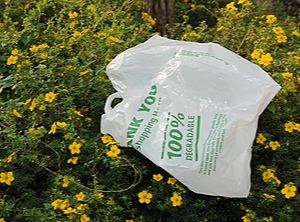SINGLE-USE PLASTICS
UK environmental group demands ban on compostable, biodegradable throwaway products
 Sale of single-use plastics is to be banned in England from April 2023 onward (Photo: PIE) |
As the UK government prepares to announce plans to ban the sale of single-use plastics (SUP) in England from April 2023, an environmental charity has called for bio-based, ‘compostable’ and ‘biodegradable’ plastic products to be outlawed as well.
The UK government carried out a three-month public consultation earlier this year on what it called “commonly littered single-use plastic items”, including wet wipes, sachets and disposable cups.
But Bristol-based environmental charity, City to Sea (www.citytosea.org.uk) said its own research confirmed that most people (61%) wanted bio-based, ‘compostable’ and ‘biodegradable’ plastics banned too. “The wide-scale use of material substitutes such as bioplastics should be regarded with caution,” City to Sea said.
Related: New EU standard for home compostable carrier bags
“Bioplastics can be harmful to the environment and won’t shift people or companies away from a culture of throwaway packaging,” it added.
Not too long ago, researchers at University College London (UCL; www.ucl.ac.uk) said a two-year survey of consumers’ composting habits also found that they were confused about the meaning of the labels of ‘compostable’ and ‘biodegradable’ plastics. And when they did compost packaging labelled ‘home compostable’, the majority of the material did not fully disintegrate in domestic composting systems (see Plasteurope.com of 11.11.2022).
An estimated 4 bn items of plastic cutlery and 1 bn plastic plates are thrown away every year in England, according to reports. In September 2020 the UK government banned the supply or sale of SUP and cotton buds to end-users in England, and drink stirrers to end-users and businesses in the country.
The UK government carried out a three-month public consultation earlier this year on what it called “commonly littered single-use plastic items”, including wet wipes, sachets and disposable cups.
But Bristol-based environmental charity, City to Sea (www.citytosea.org.uk) said its own research confirmed that most people (61%) wanted bio-based, ‘compostable’ and ‘biodegradable’ plastics banned too. “The wide-scale use of material substitutes such as bioplastics should be regarded with caution,” City to Sea said.
Related: New EU standard for home compostable carrier bags
“Bioplastics can be harmful to the environment and won’t shift people or companies away from a culture of throwaway packaging,” it added.
Not too long ago, researchers at University College London (UCL; www.ucl.ac.uk) said a two-year survey of consumers’ composting habits also found that they were confused about the meaning of the labels of ‘compostable’ and ‘biodegradable’ plastics. And when they did compost packaging labelled ‘home compostable’, the majority of the material did not fully disintegrate in domestic composting systems (see Plasteurope.com of 11.11.2022).
An estimated 4 bn items of plastic cutlery and 1 bn plastic plates are thrown away every year in England, according to reports. In September 2020 the UK government banned the supply or sale of SUP and cotton buds to end-users in England, and drink stirrers to end-users and businesses in the country.
21.12.2022 Plasteurope.com [251746-0]
Published on 21.12.2022
